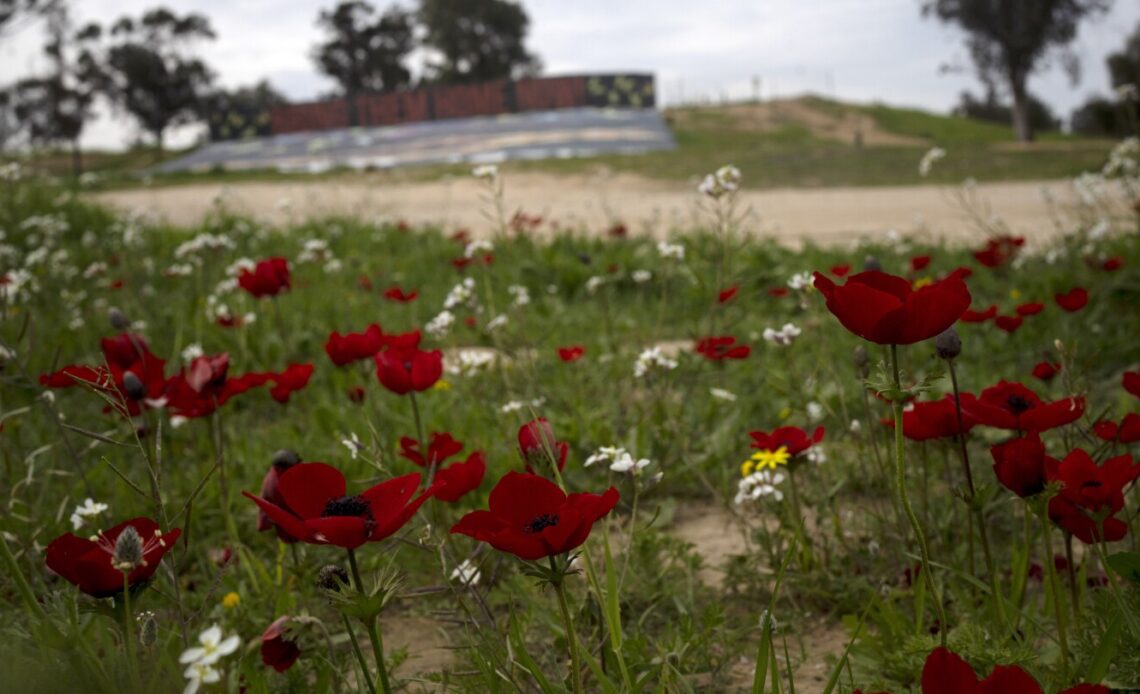REIM, Southern Israel (AP) — Each year as spring approaches, wildflowers erupt across Israel, a splash of color before the punishing Middle Eastern summer. Nowhere is the show more dramatic than in southern Israel, near Gaza, where brilliant red anemones burst forth with such intensity that rolling hills seem to be covered in red carpets.
Along the Gaza border, the flowers, which look like poppies, have been crowned with their own festival, Darom Adom, or Scarlet South. It’s been a major economic engine and source of local pride for nearly two decades, bringing hundreds of thousands to a little-visited and conflict-scarred part of Israel.
This year, even as explosions ring out and tanks churn across the fields as the war in Gaza drags into its fifth month, the flowers have burst forth with intensity. But the festival has been canceled, another war casualty.
For festival organizer Vered Libstein, everything is different.
Libstein lived in Kfar Azza, a kibbutz on the Gaza border hit hard by the Oct. 7 Hamas attack that started the war. She lost her husband, Ofir Libstein, her 19-year-old son, Nitzan, her mother, Bilha Epstein, and her nephew, Netta Epstein.
Ofir Libstein was on the kibbutz’s local security team and one of the first confirmed deaths on Oct 7. It took 12 days to find Nitzan’s body.
Seeing the dramatic red blooms return after so much loss pierces her heart, Libstein said as she walked through a field.
“On one side it’s hard, but on the other side it just proves to us that life is stronger than everything, and it renews itself, and we’ll need to find the strength to renew ourselves as well,” she said.
Hamas killed some 1,200 people and kidnapped around 250 during the Oct. 7 attack. Israel responded by launching one of the deadliest and most destructive air-and-ground offensives in recent history. Over 28,500 Palestinians have been killed, mostly women, children and young teens, according to Gaza’s Health Ministry, which does not distinguish between civilians and combatants in its count.
Libstein founded the Darom Adom festival with her husband 19 years ago, around the time when Palestinian militants started launching frequent rockets into Israel from Gaza. The flowers were a way to build pride and attract visitors.
The blooms are a symbol of resilience for Palestinians as well as Israelis. Palestinian artwork features the red flowers, whose black-and-white center and…

